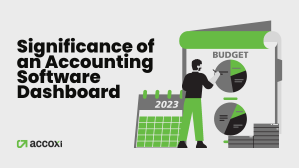

August 04, 2020

GST is now a term well acquainted with tax payers and people are well aware of the reasons why they are liable to pay GST under the system. GST has vast topics under it, of which few are of public’s interest. Of the many topics, GST Demand & Recovery is one which could possibly have consumers’ attention. Let us have a look into what GST Demand & Recovery is about and the various rules and sections coming under it.
Demand is something that is associated with consumers. For example, when a consumer wants a product or service, then that ‘want’ is what we call ‘Demand’. More and more demand for various products or services is what propels the market and which in turn contributes to the nation’s economy.
People are liable to pay tax on every product or service that they consume. If a person fails to oblige to his duty of paying tax, then the Government will ‘Recover’ the tax from the nonpayer. Taxes are inevitable part of the Government’s measure to run the economy and paying is the dutiful action of every citizen. So basically, Demand is the want for product/service and Recovery is the stringent measures taken by the government to recover tax from a defaulter who failed to pay tax.
Under Section 73, a notice is issued when there is no shortfall for tax issued and is applied to non-fraud cases. Following are the conditions applied:
These conditions are for reasons other than fraud when the consumer had no intention of evading tax. The GST authority will send show cause notice to such taxpayers and will be responsible to pay the due amount along with interest and penalty as directed.
Section 74 applies to cases when there has been an attempt made by the taxpayer to evade tax. Following are the conditions applied under this section
The taxpayer will get the following benefits as a result of misrepresenting facts
The GST authority will issues a show case notice to the taxpayer and will mandate him to pay the due amount along with interest and penalty.
| Section 73 of CGST 2017 | Section 74 of CGST 2017 | |
| Before show cause notice is issued |
Penalty or notice shall not be issued and the taxpayer have to pay the tax which is due along with the applicable interest |
No notice will be issued and the taxpayer has to pay the tax which is due together with penalty and interest at 15% of the due tax amount |
| After show cause notice is issued | Taxpayer should pay the due tax within the period of 30 days of issues of show cause notice along with applicable interest, with no penalty after payment of the due tax | Taxpayer have to pay the due tax along with penalty at 25%, the payment of which should be made within 30 days of issue of show cause notice |
| After an order is issued | If a taxpayer pays the interest, tax or penalty on time, he may avoid the prosecution even after the issuance of the order. | Taxpayer have to pay tax including penalty and interest at 50% of the tax due, after which the proceeding shall be assumed to have completed |
| Other Cases | Taxpayer have to pay the due tax amount along with penalty and 10% interest of the due tax or RS.10000 (whichever is higher) within 30 days of communicating the decision | Taxpayer should pay due tax along with penalty and 100% interest of the due tax |
Rule 142 of CGST Act 2017 is about issuance of order and notice of demand that must be paid by the person upon whom the payment of tax liability has been imposed. The authorized officer should issue the summary in an electronic format alongside notices under Section 73(1) or Section 74(1) or Section 76(2) in Form GST DRC-01 detailing the sum payable.
The proper officer should also issue the summary in an electronic format along with statement under Section 73(3) or Section 74(3) in Form GST DRC-02 detailing the sum payable.
A person who is liable to pay the tax makes the payment of interest and tax on par with Section 73(5) or tax, interest or penalty on par with Section 74(5) before the notice is issued to him, he should fill out Form GST DRC-03 and inform the clearance of dues to the proper officer. On receiving the information from the taxpayer, the proper officer should acknowledge his acceptance of the payment made by the taxpayer in Form GST DRC-04.
If a person who has the liability to pay tax under Section 73(8) of interest, penalty or tax under Section 74(8) within 30 days of notice issued, the person should inform about this t the proper officer through Form GST DRC-03. The proceedings shall be settled after the officer issues order in Form GST DRC-05.
A person who is liable to pay tax representing himself under Section 73(9) or Section 74(6) or Section 76(3) that representation made by him should be filled in Form GST DRC-06.
A Form GST DRC-07 needs to be filed when order issuance is done in summary under Section 73(9) or Section 74(9) or Section 76(3), stating the sum of interest, penalty or tax liable to be paid by that person. The issuance of order shall be a recovery notice. When a proper officer correct order in compliance with Section 161 of CGST 2017 done through Form GSTDRC-08.
Section 75 of CGST Act 2017 depicts the general provisions about the determination of tax. When a notice issued or order released by a public officer is put on hold by the Appellate Court for calculating the limitation period under Section 73(2) and Section 73(10) or Section 74(2) and Section 74(10), the period till issuance of notice under the period it got held shall be excluded.
Wilful misrepresentation or fraud or suppression of facts for evading tax under Section 74(1) fails to establish facts against the person to whom notice was issued by the officer, shall be removed by the Tribunal and considered as notice under Section 73(1). Directions passed by the tribunal require order on par with it and that order should be passed within 2 years from the date of communication of the direction.
When a taxpayer receives unfavourable decisions regarding tax or liability, he will have the opportunity to clear his part as approved by the concerned authority.
If an order does not talk about any interest linked with the short paid//not paid tax, the tax payer will still have the liability of paying interest on taxes. If a court fails to pass a judicial decision in 3 years under Section 73(10) or 5 years under Section 74(10), then the proceeding shall be considered to have terminated.
On imposing a penalty on a person under Section 73 or Section 74, there shall be no corresponding penalty imposed on that person under any provisions under CGST Act 2017.
Section 78 of CGST 2017 details the consequences the taxpayer will have to pay for not paying tax after court issues an order. When court issues an order to pay tax which is followed by another order demanding the taxpayer not to pay the tax, then the person will have to pay the tax within 3 months from the date when the first order was made. On failure of paying, the person will have to face the recovery proceedings.
Section 78 is about a situation when the proper officer can decide that the person should pay tax before the 3 months granted to him, and then asking him to pay the tax before the prescribed time period by clearly stating the reasons while doing so.
Section 79 of CGST Act 2017 implies the provisions pertaining to recovery of tax when a taxpayer fails to pay tax to the government.
| Rules | Objective | Description |
| Rule 143 |
When Tax is recovered by Deducting the Amount from Owned Money |
The proper officer can entitle another officer through Form GST DRC-09 deduct the sum of due money of the defaulter on par with Section 79(1)(a) |
| Rule 144 | Recovery of Tax by Auction | The amount if tax will be recovered from the defaulter by selling his goods owned by that person and this proceedings shall be on par with Section 79(1)(b) |
| Rule 145 | Tax Recovery from the Third Person | The proper officer will issue a notice through Form GSTR DRC-13 directing him to pay the default amount mentioned in the notice and this will be on par with Section 79(1)(c) |
| Rule 146 | Execution of Decree for the Recovery of Tax | A request will be sent by the proper officer to the court through Form GST DRC-15, stating the execution for the decree for sale or payment of money for enforcing the charge for mortgage |
| Rule 147 |
Attachment of Movable or Immovable Property for Recovery of Tax |
The proper officer shall seize the property of the defaulter after the officer makes a list of the defaulter’s movable and immovable properties. A market value will be estimated and the notice will be passed through Form GST DRC-15 |
| Rule 155 | Recovery of Tax by the Collector | The proper officer will issue a certificate to the Collector or Deputy Commissioner for recovering the tax amount from the taxpayer through Form GST DRC-18. The rule is invoked when the amount of tax is to be recovered according to Section 79(1)(e) |
|
Rule 156 |
Recovery by a Criminal Court | The proper officer will impose the interference of the magistrate to recover tax through provisions under Code of Criminal Procedure, 1973. The application will be made by the proper officer through Form GST DRC-19. |
| Rule 157 | Recovery from the Surety | Deals with another person who will be liable to pay the default amount. On making a person ‘surety’ for a defaulter’s due tax amount, all proceedings shall be carried out against ‘surety’ holding him fully responsible for the defaulters act. |


